ERP Software for Retail: Enhancing Inventory and Sales Management
December 6, 2024
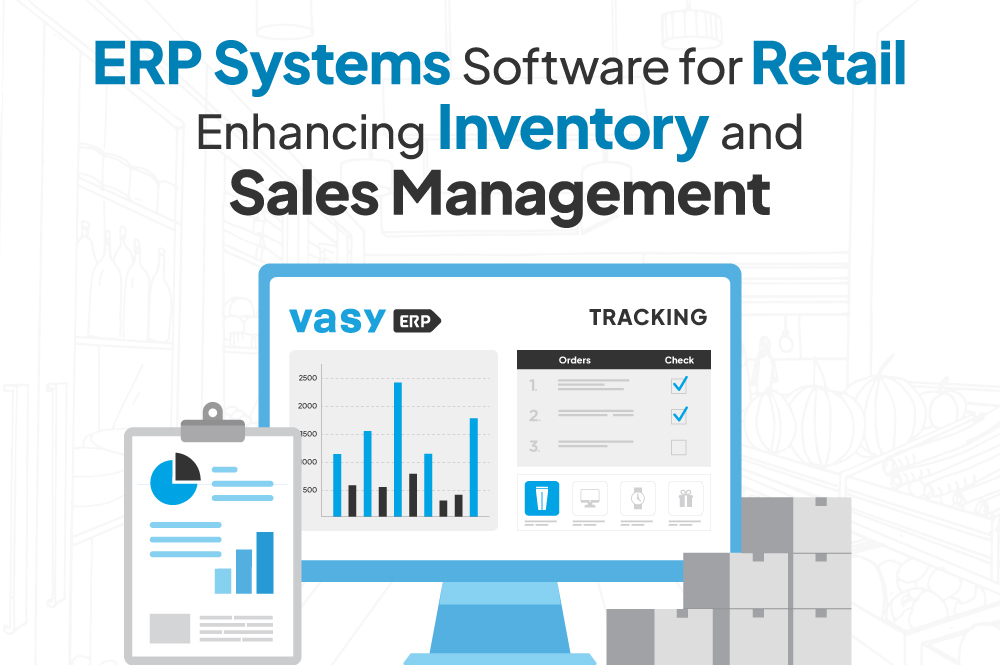
Managing inventory and sales is a constant challenge for retailers, especially in today’s competitive landscape, where customer expectations are high and margins are often tight. Enter ERP (enterprise resource planning) systems: a technology solution that integrates various retail operations into a single, streamlined platform. ERP software systems are designed to enhance efficiency, optimize inventory, and boost sales performance, making them an essential tool for modern retail businesses aiming to stay ahead.
ERP software systems are comprehensive platforms that integrate multiple business functions, such as inventory management, sales tracking, supply chain logistics, and financial accounting, into a single system. Tailored for the retail industry, ERP systems provide specialized modules that address common challenges:
These features allow retailers to operate more efficiently, eliminate redundancies, and deliver superior customer experiences.
According to a 2024 ERP industry report, the retail sector accounted for 8% of ERP implementations in 2023, reflecting the industry’s growing reliance on integrated systems to manage complex operations. Retailers increasingly adopt ERP solutions to enhance inventory accuracy, streamline supply chain management, and support omnichannel strategies.
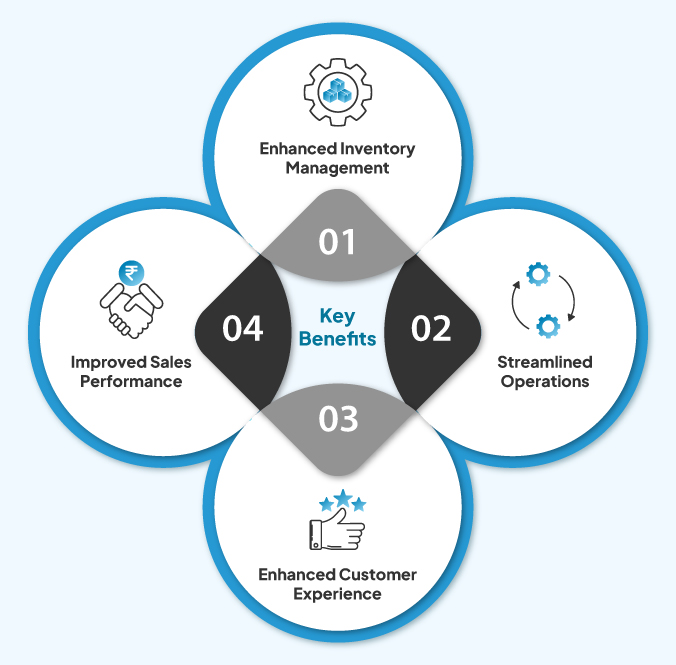
Retailers often struggle with balancing stock levels to avoid overstocking or stockouts. ERP systems can help your business by providing real-time visibility into inventory levels across all locations automating reordering processes based on demand trends. With these capabilities, retailers can maintain optimal stock levels, reduce waste, and save costs.
ERP software systems integrate sales data across multiple channels, from in-store transactions to e-commerce platforms, providing a unified view of performance. This enables accurate sales forecasting and personalized promotions, which drive higher conversion rates and revenue.
A centralized ERP system eliminates data silos and manual errors by unifying operations such as inventory, sales, and supply chain management. This leads to better coordination among departments and more efficient decision-making.
With ERP-driven insights, retailers can predict customer preferences, offer tailored promotions, and ensure products are always in stock. Faster order processing and fulfillment further enhance customer satisfaction, fostering loyalty.
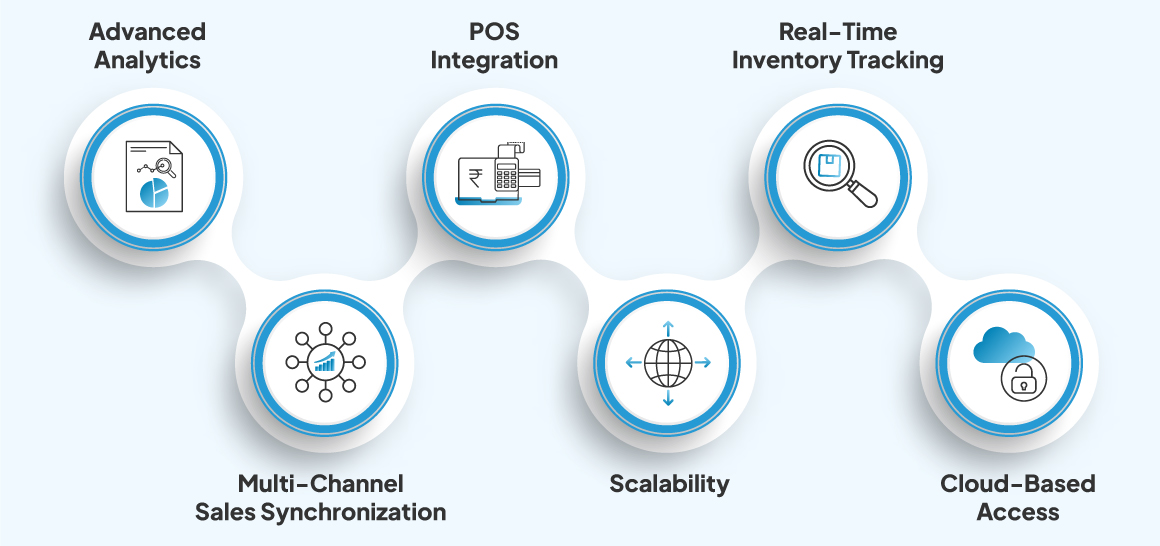
Features to Look for in Retail ERP Systems
These features empower retailers to manage their businesses with agility and precision.
ERP systems revolutionize inventory management by providing accurate, real-time data. Retailers can track stock levels, movement, and demand trends across all locations. Advanced forecasting tools help predict future stock needs, enabling timely replenishment and preventing stockouts. Automation is another critical advantage. ERP systems automate tasks like reordering, categorizing products, and managing warehouse locations. With less manual intervention, businesses reduce errors and improve efficiency.
Sales management becomes effortless with ERP systems. By integrating sales data from all platforms, including online and brick-and-mortar stores, retailers can gain a comprehensive view of their performance. This integration allows for better pricing strategies, targeted promotions, and seamless management of returns. Additionally, ERP software systems support loyalty programs and personalized offers by analyzing customer data. Retailers can use these insights to retain customers and attract new ones, ensuring sustained growth.
While the benefits are substantial, implementing an ERP system comes with challenges:
Addressing these challenges through careful planning and vendor support is key to a successful implementation.
Kirana King, a small retail network in India specializing in grocery stores, successfully implemented VasyERP to streamline its operations. The ERP system helped Kirana King digitize inventory management, automate billing, and track sales data across multiple locations in real time.
This transformation reduced manual errors, improved stock availability, and enhanced customer satisfaction. As a result, the network witnessed a 25% increase in operational efficiency, enabling them to scale their operations effectively.
A supermarket chain utilized ERP analytics to accurately forecast demand, leading to a 20% reduction in overstocked items and improved profit margins.
These examples highlight the potential of ERP systems to drive operational excellence for both small and large retail businesses.
The future of ERP systems is promising, with advancements like:
Retailers adopting these trends will stay competitive in a rapidly evolving market.
Selecting the right ERP system requires a careful evaluation of your business needs. Key considerations include:
Requesting demos and consulting with experts can help in making an informed decision.
ERP software systems have become indispensable for modern retailers, offering robust tools to manage inventory, streamline sales, and enhance customer satisfaction. By adopting an ERP solution, retailers can overcome operational challenges, improve decision-making, and achieve sustainable growth. Explore ERP systems today to elevate your retail operations and stay ahead in the competitive marketplace.
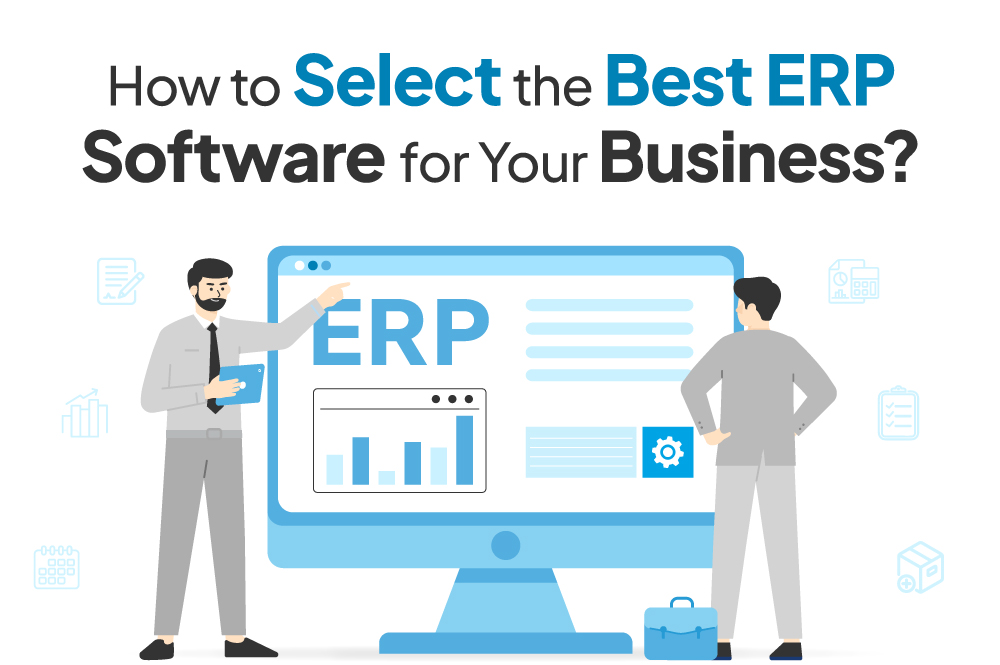
Enterprise Resource Planning (ERP) is a software applic...
January 27, 2025
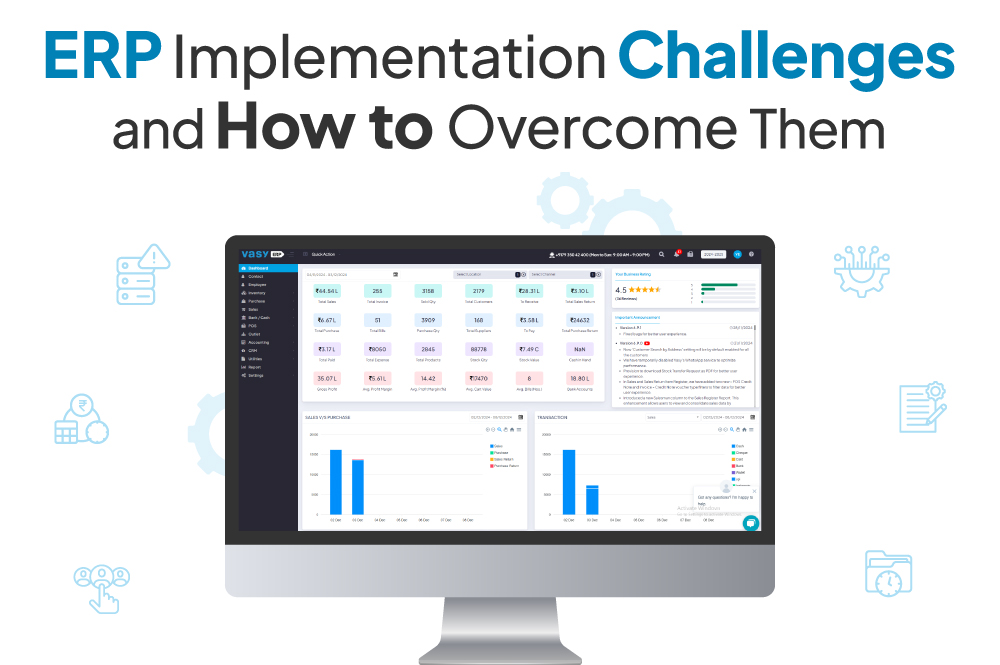
ERP implementation is a critical phase for any growing ...
May 21, 2025
